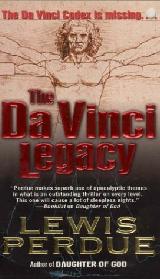Q. Is there really a "quantum theory" of consciousness or did you make that up?
A. Yes. The top center for studying this is the Center for
Consciousness Studies at the University of Arizona. The leading proponent of quantum
consciousness theory are Sir Roger Penrose OM (born August 8 1931), an
English mathematical physicist. highly regarded for his work in
mathematical physics, cosmology and a key theorist about black holes
along with his partner in this, Stephen Hawking.
Q. Why did you choose "free will" as the underlying backbone of deeper substance in Perfect Killer?
A. Because intentionality, the ability to make a choice and the
necessity of living with the consequences of choice underpin all of
human relations from marriage and friendship to the criminal justice
system. Additionally, the politically correct yet scientifically
incorrect notions of orthodox biology and psychology have undermined
the significance of free will and personal responsibility. Just as
classical Newtonian physics has been proven wrong so many times by
quantum physics, I wanted to set the record straight with regard to
free will and how the old, classical view has been supplanted by the
new.
Q. Your characters in Perfect Killer have a variety of mental dysfunctions ranging from coma to psychosis and outright homicidal mania. Why?
A. Because we learn so much about something when things go wrong.
And because we are fascinated and horrified when serious things go
wrong with our minds. With other animals and systems, we can
intentionally tinker with things, alter a part of a system and study
the effects to see what it does. This is obviously not ethical to do
with human beings. Thus, volumes have been written about various
mental, perception and consciousness issues all deduced from damage to
particular areas of the brain.
In addition, one of the theories in Perfect Killer is that we
are all incapacitated in some way or another in our ability to
perceive, think and decide. In other words, our brains (the meatware)
are analogous to computer hardware. We all have different hardware
configurations that vary from one person to another in their ability to
perform specific functions. Thoughts, motivations and the
decision-making process are like software which will run better on some
meatware and worse on others.
This concept is why I chose a spectrum of mental dysfunctions. The
spectrum allowed me to explore the implications of decisions made by
each character and how each character was able or unable to overcome
their own meatware limitations in making decisions.
If Penrose and Hameroff and others in the field of quantum
consciousness are correct, our consciousness derives from and has
quantum connection to the space-time continuum ??? the very fabric of the
universe and of reality itself.
Q. Is there scientific evidence for free will?
A. Absolutely. A new form of psychotherapy, known as cognitive
behavior therapy, has begun to break through the stone walls of
psychiatric orthodoxy and the current drug-oriented treatment dogma.
The therapy goes beyond traditional "on the couch" talking therapy
and requires a person to deal with their depression, anger, urges etc.
by identifying thought patterns and assumptions ("I???m a bad parent;" "I
don???t do well on tests.") then begin cognitively disputing those
assumptions and to initiate physical actions that keep themselves from
brooding over those negative assumptions.
In other words, people are thinking their way out of psychological
jams rather than popping a pill. Studies at Harvard and other
institutions have shown that CBT shows a recovery rate at least equal
to pharmaceuticals but with a significant difference: CBT therapy has a
more lasting effect than drugs like Prozac. CBT can be a "permanent"
cure because it actually changes the physical configuration of the
brain ??? growth of new synapses ??? and does so in more than one area of
the brain whereas drugs work on one specific area and are effective
only so long as the person continues to take them.
Obviously CBT represents a serious threat to the multi-billion dollar markets of the big pharmaceutical companies.
Perhaps more importantly, CBT offers confirmation that a person can
"will themselves well," and offers evidence that pure thought can be
self directed through conscious decision and that ethereal "thought"
can produce a direct physical effect.
This disturbs the mainstream of neuroscience which believes that
consciousness and all resulting thoughts are accidental or incidental
byproducts of the web of electrical discharges in our brains. Through
some as-yet-undefined method of self-referential coherence, the ruling
dogma holds that everything is matter and nothing is transcendent.
This, of course, comes from a classical physics standpoint which has
been proven incorrect so often by quantum physics.
Q. Why is quantum consciousness likely to be more valid than the classical view?
A. To begin with, studying consciousness is a lot like studying
quanta: any observation of the system ??? whether a person???s
consciousness or a photon -- changes the system. This means that we can
observe the results of an observation, but we cannot actually know with
certainty what the state of the system was prior to our observation.
The past fifty years has shown us that the classical notions of
physics formulated by Newton and expanded upon in subsequent systems
may look good to us and comply with "common sense" but that they are
simply "pretty good" approximations that do not accurately reflect the
true nature of matter, energy and reality.
If classical physics is all we had to work with, we would not have
semiconductors, solar cells, global positioning satellites, lasers, CD
players, personal computers, modern medical imaging like MRIs and PET
scans or any of the other of thousands of technological devices we take
for granted.
Yet those who study consciousness and behavior still hew to the old,
disreputable notions of classical science that have been proven wrong
for so very long. They do this because it "seems logical" to them. But
the well-proven principles of quantum physics show that the universe is
a weird and counterintuitive place where matter and energy are both
waves, particles and sometimes neither, where matter is energy is
matter and neither really exists except as a yet-undetermined function
of the space-time continuum. In the strange world of quantum physics, a
particle can be in two places at the same time; the actual state of a
system can ever be determined with absolute certainty; and an action on
an entangled particle here, can result in an instantaneous chance in another particle, there ??? even if there is a million miles away.
If this counterintuitive maze doesn???t make sense to you, you???re in
good company. Nobel Laureate and renowned physicist Richard Feynman
said that "Anybody who says they understand quantum physics is either
lying or crazy."
Albert Einstein never got comfortable with quantum physics. He
called quantum entanglement "spooky action at a distance" and insisted
the inevitable uncertainties could not be right because "God doesn???t
play dice."
Einstein was wrong. Quantum physics proves that God does play
dice. However an increasing body of research into quantum consciousness
indicates that we get to roll those dice a lot of the time and that
could be the foundation of free will.
Q. You have all this talk about quantum physics, but we???re biology, living things. How does that apply to us?
A. The biologists and chemists hate the intrusion of physicists into
the investigation of consciousness, but the reality is that everything
is physics. A biological system ??? whether it???s a turnip or a human
brain ??? is a mass of molecules, sustained and energized by energy
either from the sun or the chemical bonds in other molecules. This fits
into the category of biochemistry which is simply chemistry applied to
biological systems.
Chemistry for its part, is nothing more than the physics of how atoms behave when they connect or disconnect with each other.
Atoms connect and disconnect with each other according to how their
electron orbitals interact and this is determined by quantum physics.
These electrons, which many people think of as "solid" particles, are
actually some undefined wave or possibly string-like phenomenon. This
holds also for the supposedly solid protons and neutrons in an atomic
nucleus.
Biology = biochemistry = chemistry = electron bonding = quantum physics.
Everything is physics and the foundation of all physics is quantum physics.


